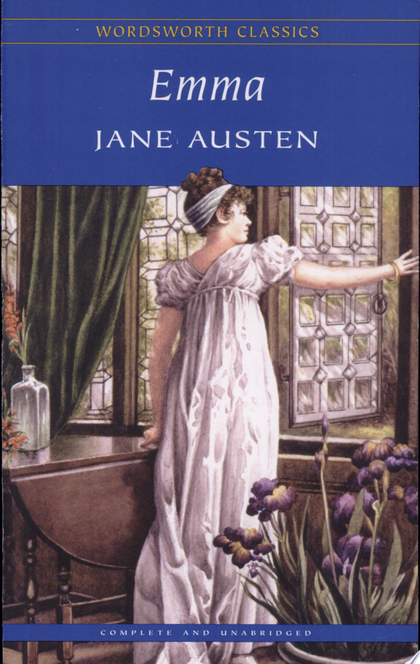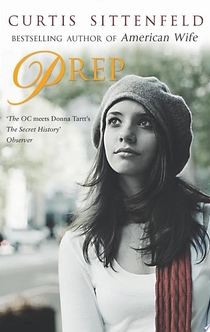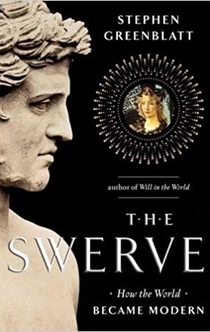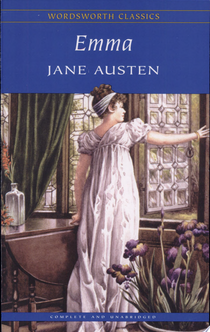
Ellie Kemper's Favorite Books - Part 2
0
likes

Prep
_____________From the bestselling author of RODHAM, AMERICAN WIFE and YOU THINK IT, I'LL SAY IT.'Sittenfeld writes girls and women as they truly are, with shades of light and dark, with and without grace, apologetic as well as fearless' GUARDIAN'PREP might just be my favourite book' PANDORA SYKES'Sittenfeld shares with Salinger a knack of capturing, in effortless prose, a teenager mindset' THE TIMES_____________Lee Fiora is a shy fourteen-year-old when she leaves small-town Indiana for a scholarship at Ault, an exclusive boarding school in Massachusetts. Her head is filled with images from the school brochure of handsome boys in sweaters leaning against old brick buildings, girls running with lacrosse sticks across pristine athletics fields, everyone singing hymns in chapel. But as she soon learns, Ault is a minefield of unstated rules and incomprehensible social rituals, and Lee must work hard to find - and maintain - her place in the pecking order._____________'PREP is more than a coming of age story - it's a study of social class ... and Sittenfeld renders it with astonishing deftness and clarity.' JENNIFER EGAN'Straightforward, serious, funny.' London Review of Books'Sharp, caustic and brilliantly observed' Observer
See all

The Swerve: How the World Became Modern
Winner of the 2012 Pulitzer Prize for Non-Fiction Winner of the 2011 National Book Award for Non-Fiction One of the world's most celebrated scholars, Stephen Greenblatt has crafted both an innovative work of history and a thrilling story of discovery, in which one manuscript, plucked from a thousand years of neglect, changed the course of human thought and made possible the world as we know it. Nearly six hundred years ago, a short, genial, cannily alert man in his late thirties took a very old manuscript off a library shelf, saw with excitement what he had discovered, and ordered that it be copied. That book was the last surviving manuscript of an ancient Roman philosophical epic, On the Nature of Things, by Lucretius—a beautiful poem of the most dangerous ideas: that the universe functioned without the aid of gods, that religious fear was damaging to human life, and that matter was made up of very small particles in eternal motion, colliding and swerving in new directions. The copying and translation of this ancient book-the greatest discovery of the greatest book-hunter of his age-fueled the Renaissance, inspiring artists such as Botticelli and thinkers such as Giordano Bruno; shaped the thought of Galileo and Freud, Darwin and Einstein; and had a revolutionary influence on writers such as Montaigne and Shakespeare and even Thomas Jefferson.
See all

Crazy Salad and Scribble Scribble
Two classic collections of Nora Ephron’s uproarious essays—tackling everything from feminism to the media, from politics to beauty products, with her inimitable charm and distinctive wit—now available in one book for the first time. This edition brings together some of Ephron’s most famous writing on a generation of women (and men) who helped shape the way we live now, and on events ranging from the Watergate scandal to the Pillsbury Bake-Off. In these sharp, hilariously entertaining, and vividly observed pieces, Ephron illuminates an era with wicked honesty and insight. From the famous “A Few Words About Breasts” to important pieces on her time working for the New York Post and Gourmet Magazine, these essays show Ephron at her very best.
See all

The Remains of the Day
From the winner of the Nobel Prize in Literature, here is the universally acclaimed novel—winner of the Booker Prize and the basis for an award-winning film. This is Kazuo Ishiguro's profoundly compelling portrait of Stevens, the perfect butler, and of his fading, insular world in post-World War II England. Stevens, at the end of three decades of service at Darlington Hall, spending a day on a country drive, embarks as well on a journey through the past in an effort to reassure himself that he has served humanity by serving the "great gentleman," Lord Darlington. But lurking in his memory are doubts about the true nature of Lord Darlington's "greatness," and much graver doubts about the nature of his own life.
See all

Emma
With an Introduction and Notes by Dr Nicola Bradbury, University of Reading. Jane Austen teased readers with the idea of a 'heroine whom no one but myself will much like', but Emma is irresistible. 'Handsome, clever, and rich', Emma is also an 'imaginist', 'on fire with speculation and foresight'. She sees the signs of romance all around her, but thinks she will never be married. Her matchmaking maps out relationships that Jane Austen ironically tweaks into a clearer perspective. Judgement and imagination are matched in games the reader too can enjoy, and the end is a triumph of understanding.
See all






